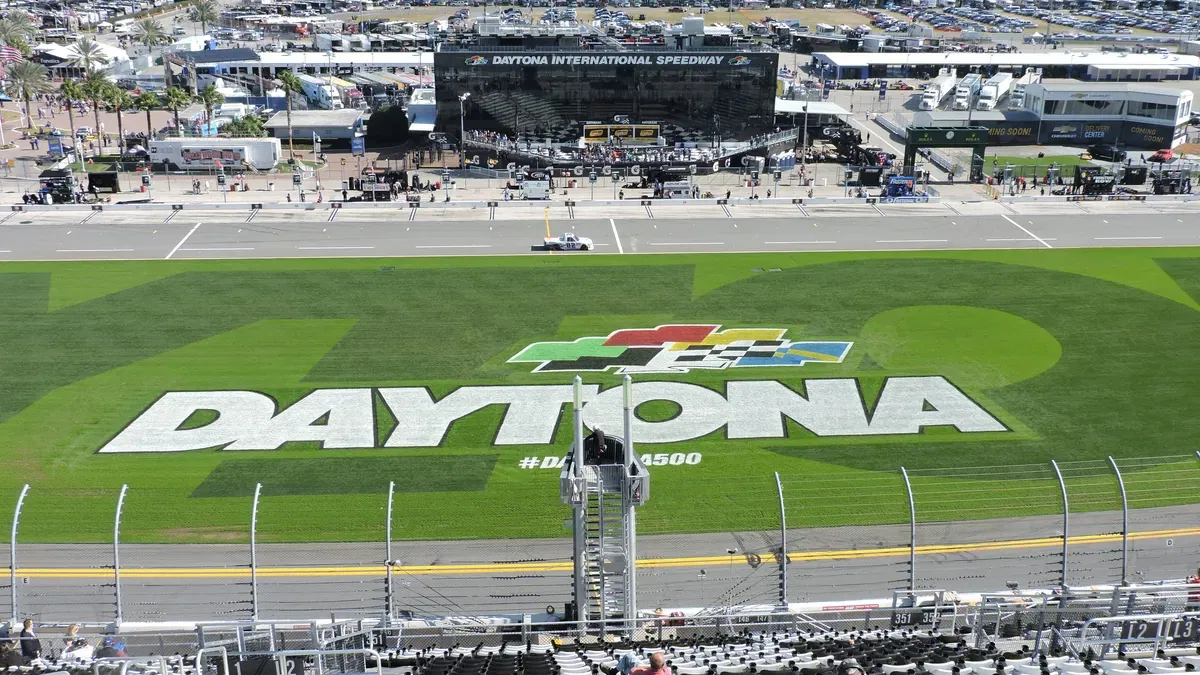
Imago
Credit: Emme Hall/CNET

Imago
Credit: Emme Hall/CNET
In the NASCAR garage, debates often spark up and split opinions among fans and teams alike. A fresh one has emerged around Daytona International Speedway. Opened in 1959 with a 31-degree bank, just over a decade after NASCAR’s founding in 1948, it has hosted ~150 Cup Series races as of the August 23, 2025, Coke Zero Sugar 400. This track also holds records, like one of the closest finishes in 2007, where Jamie McMurray beat Kyle Busch by just 0.005 seconds. But apart from its legacy and prowess, is Daytona the best choice for the cutoff race?
Watch What’s Trending Now!
Daytona shifted to the regular-season finale slot in 2020, shaking up the playoff field with potential long-shot winners. The regular season finale underlined the argument in which Ryan Blaney’s last-lap charge to victory at Daytona rewrote the playoff pecking order and handed one team an instant lifeline. As a cornerstone of NASCAR history, hosting the season opener and closer, a debate now questions its finale role. But what is fueling this split? Let’s dive in.
Fans are divided on whether a superspeedway like Daytona should serve as the regular-season cutoff race, due to its unpredictable nature that can reward luck over consistency in clinching playoff spots. This stems from the “win and you’re in” format, where a single victory locks a driver in, but superspeedways amplify chaos with pack racing and crashes. Tyler Reddick, after crashing early in the 2025 Coke Zero Sugar 400, yet advancing on points, shows frustration.
ADVERTISEMENT
This frustration highlights how these tracks can derail strong seasons, as he battled through wrecks to secure his spot despite no win there. Alex Bowman echoed the relief amid the tension, saying after his own crash, “There’s just nothing you can do, welcome to superspeedway racing.” This underscores the high variance, where even top performers like Bowman, who entered above the cutline, faced elimination risks from unavoidable incidents.
With the playoff field set at 16 drivers, including Reddick and Bowman as the final points qualifiers, the finale’s setup allows underdogs like Cole Custer or Erik Jones, both top-five finishers, to nearly steal spots, intensifying calls for a more predictable venue like Atlanta, which hosted finales from 1987 to 2000 for its emphasis on skill. A Reddit post titled “How do you feel about a superspeedway being the regular season finale?” captured this divide, drawing varied responses that reflect broader fan sentiments.
ADVERTISEMENT
Fan voices weigh in on the finale format
One fan noted, “Maximizes the cool factor of win and you’re in for sure, but I think it works as long as playoffs exist because there’s so much variance that can happen. If you don’t want something to be in jeopardy, get your ducks in a row before then, and if you weren’t able to, you can still make something happen.” This view ties to the playoff structure since 2014, where 26 regular-season races allow points accumulation, but the finale’s chaos rewards preparation. In 2025, drivers like Chase Briscoe, +4 above the cut, exemplified securing spots early, avoiding Daytona’s risks, where multi-car wrecks impacted half the field.
“It’s perfect. I watched the race last night and I was getting excited about Cole Custer, Daniel Suarez, Erik Jones, and everyone else’s chances to win on the final lap, but even if I’m pissed that Ryan Blaney won, at least Bowman is in the flawed playoffs.” The thrill peaked in the four-wide finish, with Suarez P2, Custer P4, and Jones P5 all vying for upset wins. Blaney’s surge from 12th sealed his second victory, ensuring Bowman advanced despite a DNF, highlighting how the format keeps late-race drama alive for non-winners.
ADVERTISEMENT
A mixed take came: “As much as I don’t like it because it’s such a crapshoot, I can’t say it doesn’t add more excitement.” Superspeedways introduce elements like drafting and fuel strategy that flip outcomes, as seen when Blaney beat Suarez by 0.031 seconds. This excitement drew over ~100,000 attendees, but critics point to past finales in Atlanta, emphasizing handling over luck and reducing random eliminations.
One critic said, “Personally, I hate the win and your in concept regardless of what track we race on. Even if you like the playoffs, the idea that Cody Ware or Cole Custer had a chance to lock themselves into the playoffs last night and secure a better season guys like Buescher by winning the super speedway lotto is just dumb.” The format, implemented in 2014 to boost drama, allows single-win drivers to qualify, but at Daytona, part-timers like Ware (who ran select races) or Custer nearly disrupted consistent performers like Chris Buescher, who missed the cut despite strong points.
Finally, enthusiasm rang out: “I love it. I don’t even care which SS, although it makes sense to end the regular season where it started. If they ever move Daytona back to 4th of July weekend (which I don’t think they need to), I could see Atlanta taking the place of the season finale.” Bookending at Daytona fits since the 2020 shift, with the opener in February. Atlanta‘s reconfiguration in 2022 made it superspeedway-like, hosting thrilling finishes like Suarez’s 0.003-second win in 2024, positioning it as a viable alternative if changes occur.
ADVERTISEMENT
ADVERTISEMENT
ADVERTISEMENT
ADVERTISEMENT
